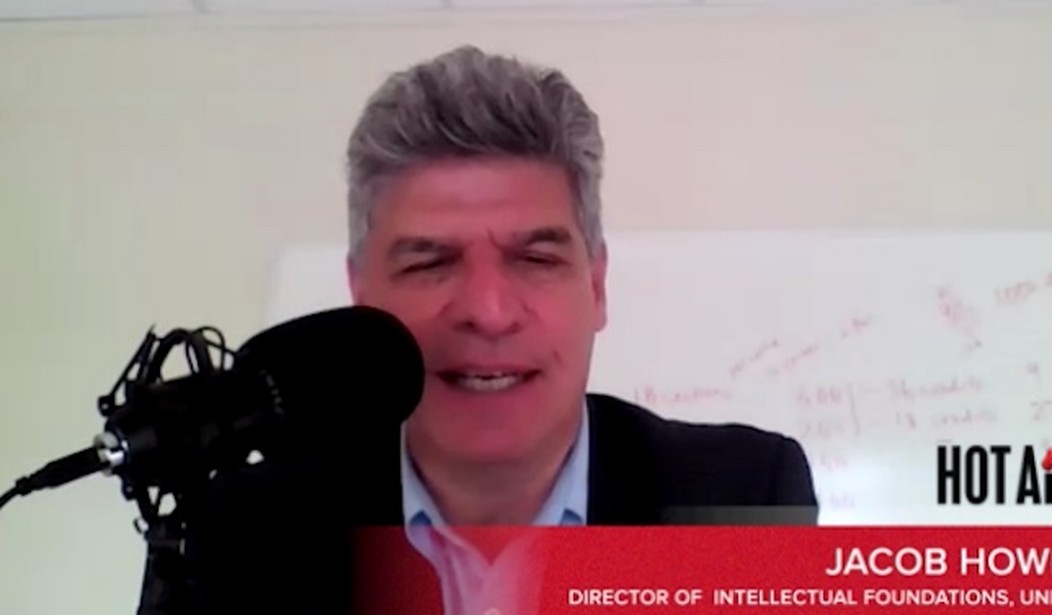And should it be saved? Plenty of voices, especially on the populist Right, want it completely defunded from government sources, particularly on the federal level. A subset of those want it shut down or at least seriously marginalized as a hopelessly corrupt system of radical indoctrination, or worse.
What if competition could save Academia? A new effort in Austin that already has some wins under its belt wants to give it a try. Jacob Howland, the director of Intellectual Foundations at the University of Austin, explains in my latest Ed Morrissey Show podcast. UATX, as it is known, has already begun operations after explorations of the idea began three years earlier.
In fact, UATX has preparations underway for its second annual program on “Forbidden Courses,” a topic that Jacob and I discuss at some length. The program is designed to prompt open discussion and debate on the same topics that will shut down speech on other campuses. In fact, the list of topics alone would prompt demand for safe spaces and trigger warnings on some American campuses — race, gender politics, evolutionary biology, and more. Last year’s offerings in this course were just as interesting, and just as provocative, Jacob tells me.
One particular focus at UTAX will be in a kind of remediation of failed education practices their students have already experienced. “Education is broken on multiple levels in the United States,” Jacob says, “and one major area in which it is broken is K through twelve. … Our plan at UATX is really to help revive higher education, and I think we’ve been doing that.”
The issue isn’t just subpar educational environments, Howland says, but also a severing of students from history and context. “In fact, they are taught to repudiate the past,” Jacob explains, “and they’re given a framework of interpretation that closes them off in advance to the text, because they already know Thomas jefferson owned slaves or something like this.” Reconnecting students to the great continuity of our past and all our cultural legacies both good and ill will allow then to “discover a certain joy in learning, which we have deprived students[.]”
Jacob also tells us of a subject he got to teach in last year’s Forbidden Courses — “Opium of Ideology.” You’ll want to hear more about that, and more from our lengthy conversation:
- “Academic standards and academic rigor are slipping away in the name of things like equity. Which, of course, as we all know, has been made clear, means equal outcomes. When that’s been tried in the past, it tends to mean a leveling down, not a leveling up, and I don’t think it’s good for students at all.”
- “We have something called the Polaris project, named after the North Star, and this is a four year project that runs sort of a through line that goes through the university. Involves students identifying a human need, something that really needs to be addressed, something that’s going to serve the human good. And then making, doing, discovering, build, and creating whatever it is that will address that need.”
- About their plans to open in Autumn 2024 as a full four-year university: “We’re facing sort of bureaucratic obstacles I won’t go into detail about, but we hope to overcome them. The problem is going to be even bigger if and when we go for national accreditation.”
- “All we’re saying is that if you want to if you believe that diversity, equity, inclusion are important goals and there should be top of the list of priorities and so forth, well, you also better, you also better believe that it’s acceptable for people to ask you for your arguments, to offer their critical responses, to give their best reasons why that’s, you know, they don’t believe that that’s so.”
We had a great conversation, and I hope you enjoy it as much as I did. The odds may be long for UATX, but they have a lot of bright (and diverse!) minds behind it. If it succeeds, more may follow — and that is how Academia could be redeemed.









Join the conversation as a VIP Member